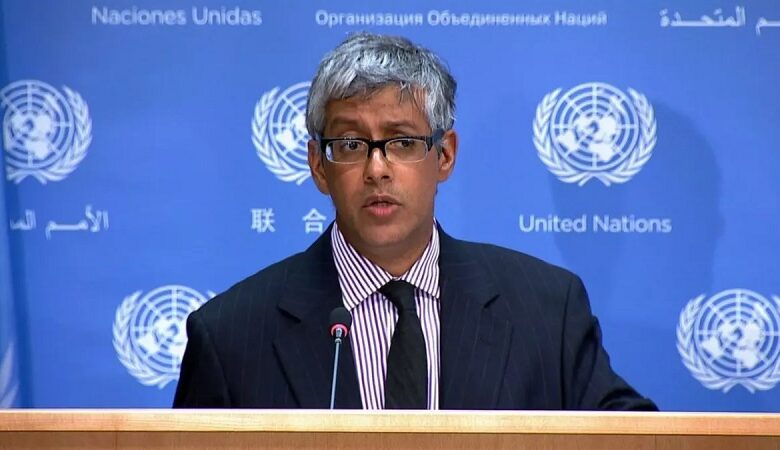
A spokesperson for the United Nations has refrained from directly addressing US President Joe Biden’s recent characterization of India, China, Russia, and Japan as “xenophobic.” However, the spokesperson emphasized the importance of all member states adhering to the fundamental standards outlined in the UN human rights covenants.
Farhan Haq, Deputy Spokesperson for Secretary-General Antonio Guterres, responded to inquiries about Biden’s remarks by stating, “I wouldn’t comment on what he said, but certainly…” When pressed further on the issue and asked for the UN’s definition of xenophobia, Haq referred to the dictionary definition and reiterated the UN’s stance on member states upholding human rights principles, including treating all races and nationalities with respect.
Despite Biden’s comments, India’s Foreign Minister, S. Jaishankar, asserted that India is not xenophobic and challenged the notion that the country’s economy is faltering due to a rejection of immigrants. Jaishankar addressed Biden’s remarks during a media roundtable, emphasizing that India’s economy remains robust and highlighting the country’s historical openness to diverse cultures.
Jaishankar emphasized India’s unique position in the world, noting its long history of welcoming people from various backgrounds. He refuted any suggestion that India’s economic growth is hindered by xenophobia, presenting statistics that showcase India as one of the world’s fastest-growing economies.
India’s economic growth, as reported by official data in February, demonstrates strong performance, with an annualized GDP growth rate of 8.4 percent in the December quarter. Jaishankar’s remarks underscored the discrepancy between Biden’s characterization of India and the country’s economic reality.
However, India has faced criticism from some quarters regarding its treatment of minority communities, particularly Muslims. Critics have accused Prime Minister Narendra Modi’s government of implementing policies that discriminate against Muslims, including amendments to India’s citizenship law.
The amended citizenship law, passed by parliament in 2019 and enacted in March, triggered widespread protests and drew condemnation from human rights organizations. Amnesty International warned that the law, along with a proposed National Register of Citizens, could be used to marginalize Muslims and deprive them of citizenship rights.
Despite these criticisms, Jaishankar pushed back against accusations of discrimination, emphasizing India’s commitment to democracy and inclusivity. He criticized what he described as attempts by Western media to interfere with Indian democracy, asserting that India’s democratic principles remain strong.
In addressing Biden’s comments and defending India’s record, Jaishankar highlighted the importance of factual accuracy and context in discussions about India’s internal affairs. He reiterated India’s position as a diverse and inclusive society that values its democratic traditions.
The exchange between the UN spokesperson, Biden’s comments, and Jaishankar’s response underscores the complex dynamics of international discourse on human rights and national sovereignty. While the UN emphasizes the universal importance of upholding human rights standards, individual countries may challenge external perceptions and assert their own narratives.






